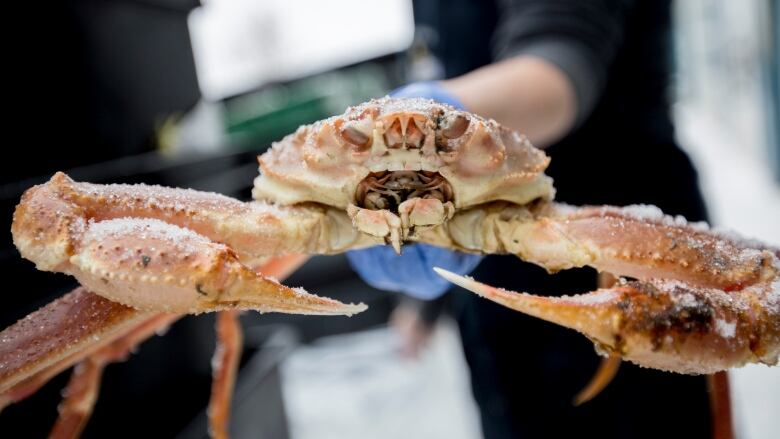How Ottawa is using a snow crab boom to move quota to First Nations
Decision to increase Indigenous catch 2.5% 'un-transparent,' says head of Cape Breton fishermen's group

The Department of Fisheries and Oceans says it is in the process of telling First Nations which communities will get a piece of the 1,100 tonnes of snow crab from the southern Gulf of St. Lawrence that will be given to First Nations in 2017.
This is the first time in 14 years that a Canadian government has taken fish quota from a commercial fishery and awarded it to First Nations.
The last allocation was forced on the federal government by the 1999 Supreme Court of Canada Marshall decision. It found that Mi'kmaq, Maliseet and Passamaquoddy peoples were entitled to make a reasonable living from the commercial fishery.
"This is an indication of the government's commitment to reconciliation with Indigenous communities and to further a nation-to-nation relationship with them," said Adam Burns, acting director general of fisheries resource management.
The southern Gulf season opens next week in New Brunswick, P.E.I. and the mainland of Nova Scotia.
Talks between federal and First Nations officials over who gets how much started Thursday and are underway today.
Exceptional season forecast
Federal Fisheries Minister Dominic LeBlanc has chosen to increase access for First Nations in what is shaping up as a exceptional year for everyone involved in the Gulf snow crab fishery a perfect storm of significant quota increases coupled with extraordinarily high prices.
The 2017 quota has doubled to 43,000 tonnes with prices expected anywhere from $4 to $5 per pound.
The snow crab set aside for Native fishermen amounts to 2.5 per cent of the overall quota.
Its being taken from the share of current Native and non-Native licence holders.
"One of the things Indigenous communities could do with this one-time allocation is to use the proceeds from it to acquire new permanent access from retiring commercial harvesters," Adams tells CBC News.
He says it is expected that most of the new snow crab allocation will be given to First Nations bands already in the commercial snow crab fishery.
Not everybody on board
The decision has been criticized by one group of fishermen, who say they were never consulted.
"This was the most un-open and most un-transparent process I've ever seen," said Basil MacLean, president of the Area 19 Snow Crab Fishermen's Association, which includes 140 snow crab licence holders in western Cape Breton.
MacLean said at current prices the redistribution will mean fishermen in Area 19 will take home $700,000 less than they might have made.
DFO claims it did tell Area 19 representatives the re-allocation was happening in advance.
"Clearly they've indicated they prefer this amount not be set aside but that is the ultimate decision the minister has made.
N.B. fleet declines comment, citing court case
Over 90 per cent of the southern Gulf snow crab fishery is in Area 12, which has a total allowable catch of nearly 40,000 tonnes shared between the Maritime provinces and Quebec.
The biggest share goes to the New Brunswick midshore fleet.
Its representative, Robert Hach, declined to comment, citing the fleets ongoing Federal Court litigation against DFO.
That case is an attempt to get compensation for the last time the minister of Fisheries and Oceans redistributed snow crab from the fleet to First Nations and other fleets in 2003.












_(720p).jpg)


 OFFICIAL HD MUSIC VIDEO.jpg)
.jpg)



























































































